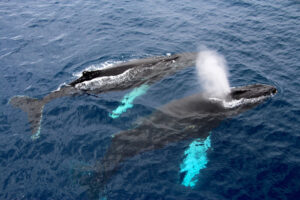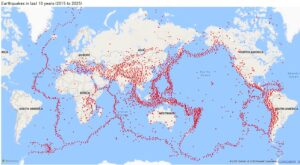Norway’s Svalbard Global Seed Vault is, by its very nature, a secretive place. Nestled high in the Arctic, buried deep in the permafrost on an icy archipelago, and with an entrance that looks like a crashlanded spaceship, the vault is a repository of humanity’s agricultural accomplishments — and a last bulwark against future apocalyptic catastrophes.
As such, not many people get to take a peak inside. Until now.
To mark its 15th anniversary, the vault managers (the Norwegian government, Crop Trust, and NordGen) have kicked open its doors and invited everyone to take a (virtual) look.
“The virtual tour gives everybody the opportunity to look inside. We think that is a general question of transparency and accountability to the broader public,” Stefan Schmitz, executive director of the Crop Trust, told The Guardian. “What is secured inside the vault is one of the most important global public goods we have on Earth. But we need to protect them, secure them and to make sure that they are conserved in perpetuity.”
The virtual tour is slickly produced. Before entering, you can view the vault’s unique exterior architecture in both day and nighttime modes.

Photo: Screenshot
Seeds on ice
Once you do, it’s a bit of a shock to see how utilitarian the interior is.

Photo: Screenshot
After traveling down a long and dramatic hallway, you reach The Cathedral, so named for its high arched ceiling and hushed audioscape. From there, you enter the frigid collection rooms, which just received an additional 19,500 rare varieties of seeds, according to Reuters.

Photo: Screenshot
“When you open the door [to the collection rooms], it’s -18˚C — the international standard for conserving seeds — which is very, very cold. Then you see all of the boxes with seeds from all of these countries. I’ve been so many times and I’m still curious,” Schmitz said.

Photo: Screenshot
Conspiracy central
The Svalbard Global Seed Vault has been a nexus of conspiracy theories since it opened in 2008 — perhaps because of its remote location, architecture, and doomsday associations. But it doesn’t take the end of the world for the vault to serve its purpose. In 2016, The International Center for Agricultural Research in the Dry Areas used the vault to replenish seeds lost when the Aleppo seed bank was destroyed during the Syrian civil war.
You can take the Svalbard Global Seed Vault virtual tour here.






